The History of the Mediterranean Games
The first to realise the importance and the role and the one who conceived the idea and the organisation of the Mediterranean Games was the Egyptian Mohamed Taher Pacha, an eminent member of the international Olympic movement and the Mediterranean family, who served the Principles and Values of Sports throughout his life and also served as Vice President of the International Olympic Committee.
He confided his vision for the organisation of sports games with the participation of the Mediterranean countries to the Greek Ioannis Ketseas, also a member of the IOC, on the sidelines of the London 1948 Olympic Games. This was a time of great tensions prevailing in the Eastern Mediterranean region and Northern Africa and Sports was for them the sole means for relieving the intense political, racial and local conflicts.
Mohamed Taher Pacha, who was also the President of the Egyptian Olympic Committee, agreed with Ketseas that they had to overcome two main obstacles: firstly to convince more Mediterranean countries to participate in the Games and secondly for the International Olympic Committee to agree to recognise this new institution.
The IOC approved the project and consented so that the dream of the two men could be fulfilled: the organisation of the first Mediterranean Games that would unite three continents (Europe, Africa, Asia) and and would bring together nations with different cultures, languages, religions, with some of them having a history and tradition of intense differences, dating back in time.
The first Mediterranean Games were held in Alexandria, Egypt, in the honour of the initiator of the Games, Mohamed Taher Pacha. The Opening Ceremony took place on 5 October 1951, with the presence of 10 countries, participating in 13 sports. The country dominating the medal count was Italy, whereas Egypt, Greece, France, Spain, Yugoslavia, Turkey, Lebanon, Syria and Malta also participated in the Games. The 13 sports in which participated 734 athletes in Alexandria were: athletics, football, basketball, swimming, gymnastics, diving, boxing, fencing, rowing, shooting, weightlifting, wrestling and water polo.
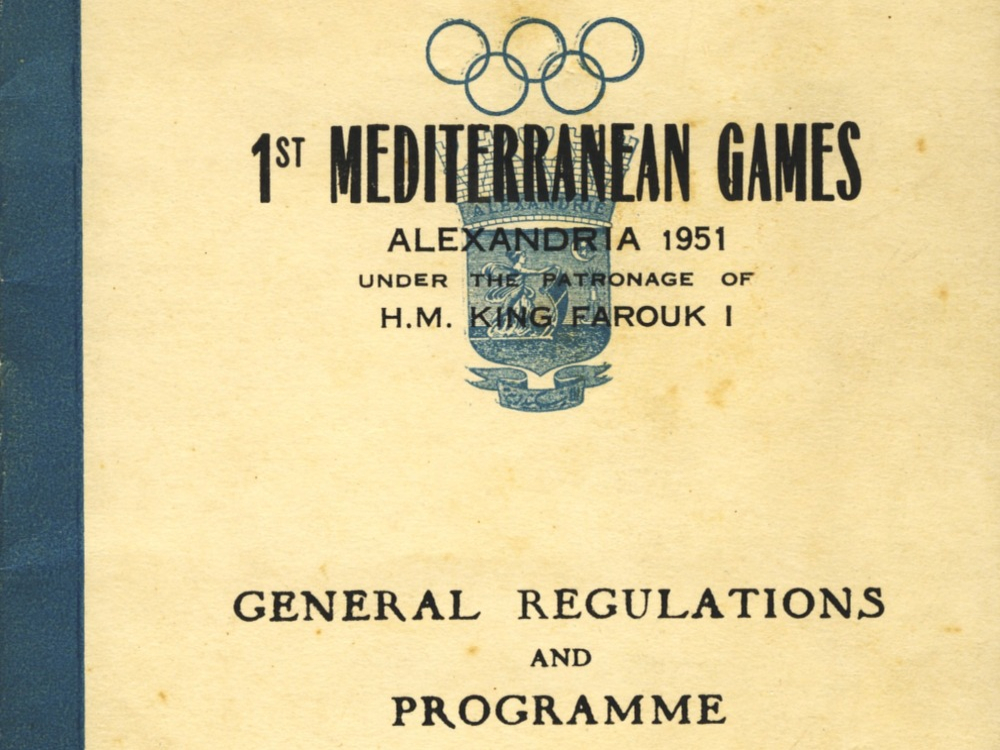
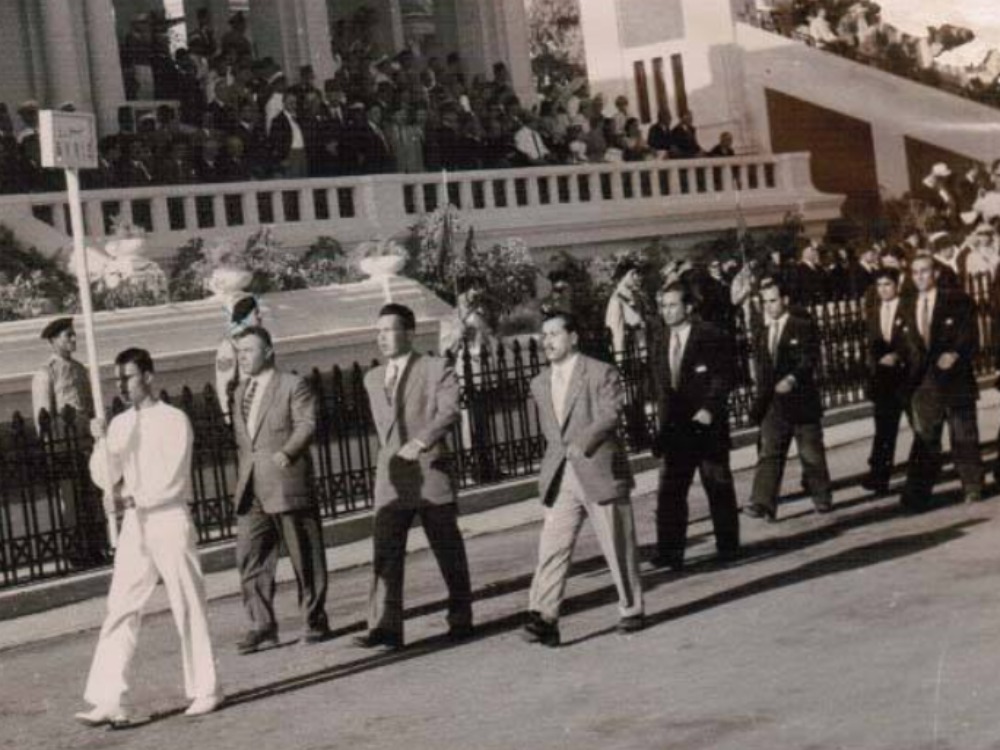
On 12 October, at the house of the International Olympic Committee member Angelos Volonakis, in Alexandria, under the presidency of Pacha, also gathered Ιoannis Ketseas (Greece), Armand Massard (France), Baron de Guell (Spain), Giogio di Stefani (Italy), Danyal Akbel (Turkey), Burhan Felek (Turkey), Gabriel Gemayel (Lebanon) in the presence of the lawyer and legal counsel of IOC Otto Mayer.
They all agreed that the Games were successful and that they should be continued every four years, in the middle of every Olympic Games. However, it was necessary to communicate with the IAAF regarding the next competition, since the European Athletics Championships was scheduled to take place in 1954, in Bern.
In this same meeting, the matter of the hosting city for the 2nd Mediterranean Games was discussed and Baron de Guell indicated Barcelona. Pacha, Volonakis and Κetseas who, before the staging of the Games in Alexandria had proposed Athens, withdrew their proposal in favour of Barcelona and it was unanimously decided that the city that would host the 2nd edition of the Mediterranean Games would be Barcelona.
The city to host the 3rd Mediterranean Games was also discussed and Felek suggested Ankara with Volanakis replying that since the next Games were not awarded to Athens, then the Greek capital should host the 1958 Games. It was finally decided that it would be premature to decide about this at the time.
Regarding the establishment of the Committee of the Mediterranean Games, it was decided that it should comprise members of the International Olympic Committee coming from the Mediterranean along with a representative of each National Olympic Committee of the 10 countries that participated in the inaugural competition. Following a proposal of Ioannis Ketseas, the President of the Committee would be the President of the Organising Committee of each organising city and his term would start as of the conclusion of the previous Games. For Barcelona Baron de Guell was unanimously selected, whereas Mohamed Taher Pacha was proclaimed Honourary President of the Mediterranean Games Committee.
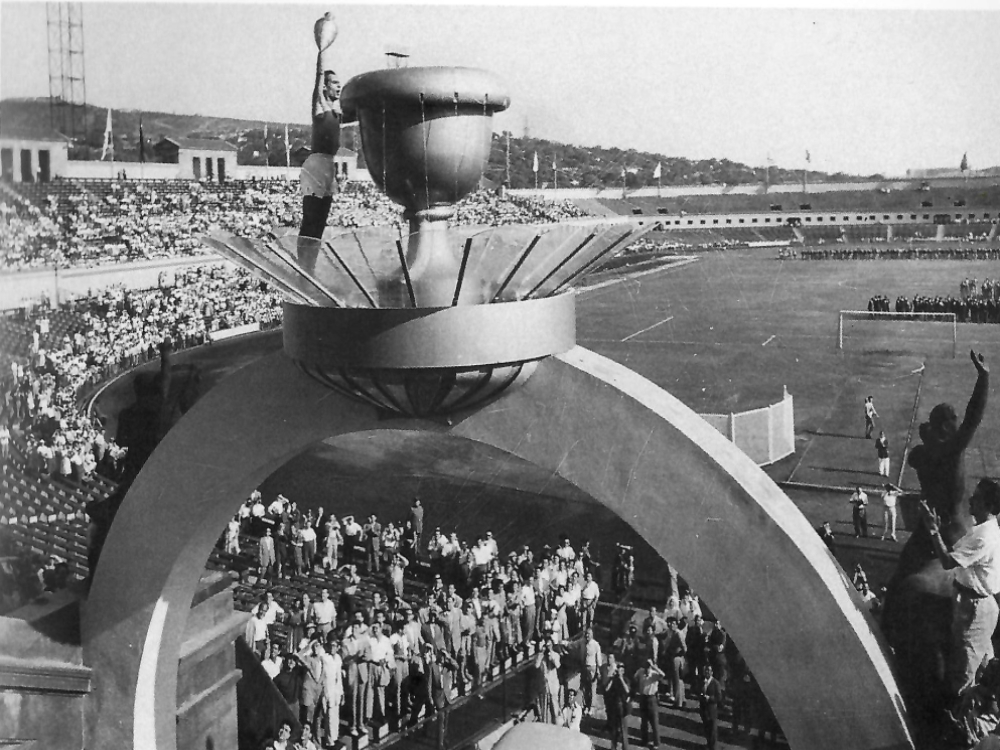
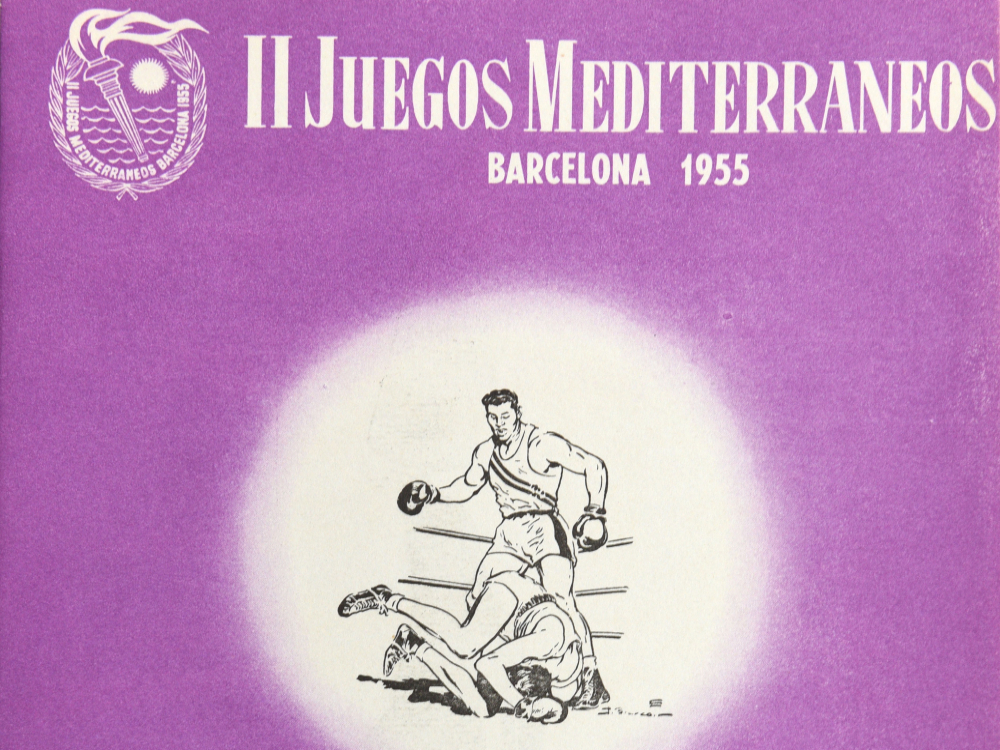
The success that this first edition was met with paved the road for the continuation of the Games and four years later they were hosted in Barcelona, Spain again with the participation of 10 nations, whereas an increased number of 1,135 athletes competed in 19 sports. The nations participating in this edition were Egypt, Greece, France, Spain, Italy, Malta, Turkey, Monaco, Syria and Lebanon. The Spanish Baron de Guell was the man that implemented the project of staging of the Games. In Barcelona, it was also decided that a committee would be established that would be responsible for all decisions relating to the organisation of the Games. The first Executive Committee was held with the participation of the Honorary President Mohamed Taher Pacha, the General Secretary Otto Mayer and the members: Angelos Volonakis, Ιoannis Ketseas from Greece, Armand Massard, Francois Pietri from France, Paolo Thaon de Revel, Giogio di Stefani from Italy, Gabriel Gemayel from Lebanon, Prince Pierre of Monaco, Stanko Bloudek from Yugoslavia, Pedro Ibarra Mac Mahon from Spain and representatives from the National Olympic Committees of Malta and Syria.
The third edition took place in 1959, for the first time in Asia after Africa and Europe, with Beirut hosting the Mediterranean Games between 11 and 23 October. There were 11 countries participating: Greece, France, Italy, Lebanon, Morocco, Spain, Malta, Tunisia, Turkey, Yugoslavia and the United Arab Republic (Egypt and Syria). 792 athletes competed in 17 sports.
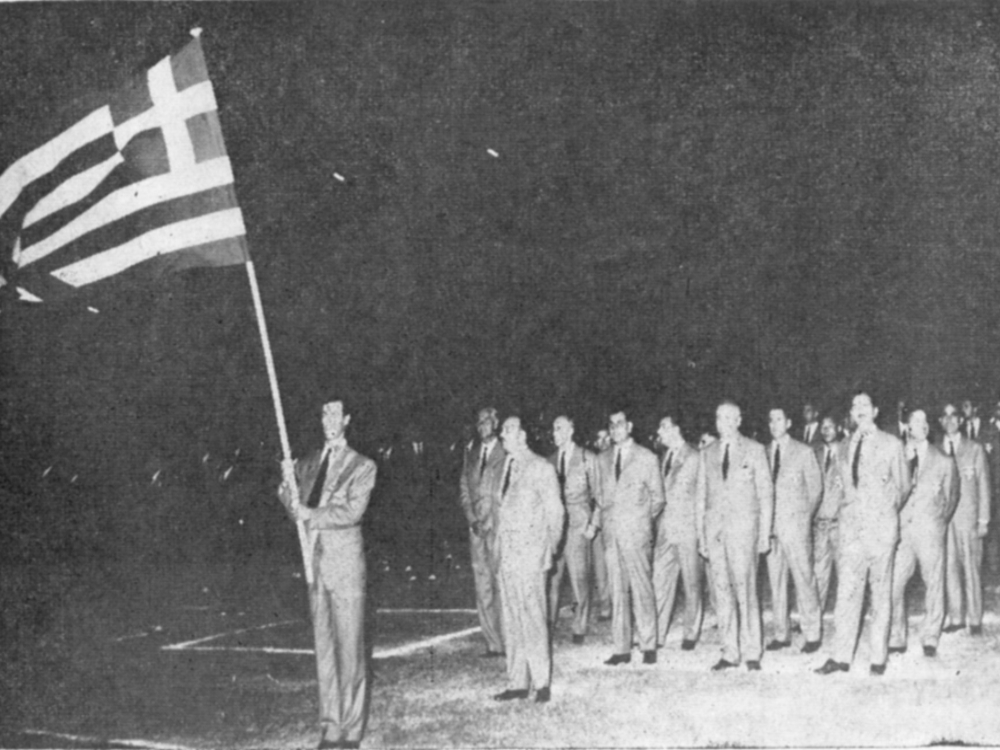
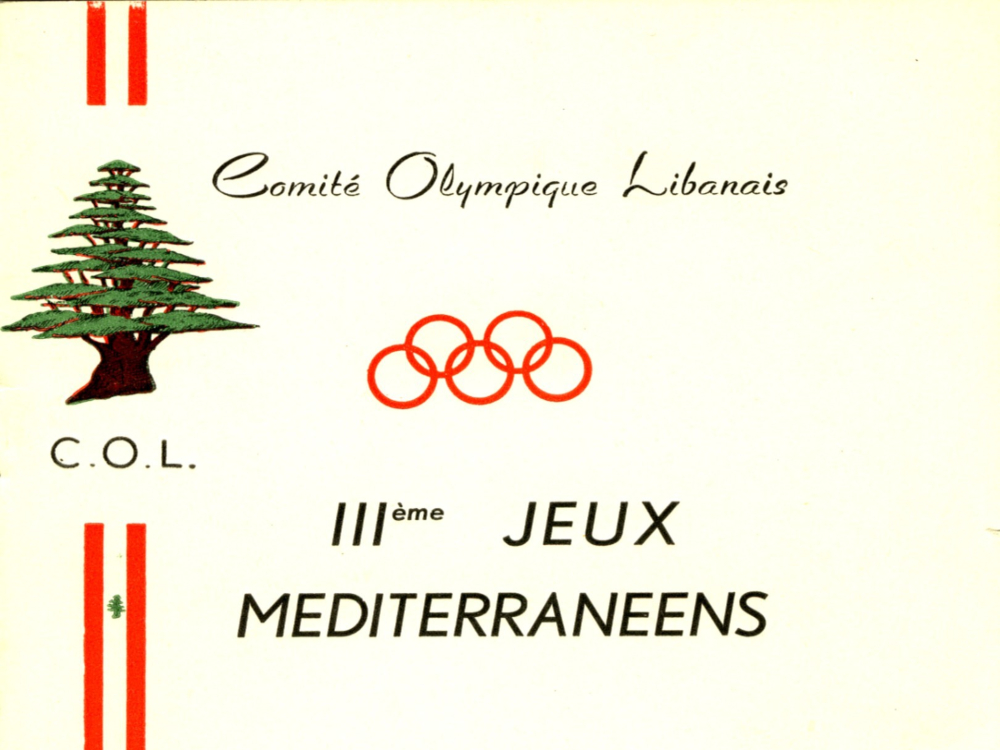
In Beirut, the President of the Olympic Committee of Lebanon and member of the International Olympic Committee Gabriel Gemayel, realised that the Mediterranean Games should be fortified with the existence of a permanent organisation authority and thus on 16 June 1961 the International Committee of the Mediterranean Games was founded, with its seat in Athens. Earlier, on 28 August 1960, Gemayel was the official first President of the Mediterranean Games. The relevant minutes detail that Gabriel Gemayel was elected as President, Juan Antonio Samaranch as Vice-Chairman, Ιoannis Ketseas as Secretary General and Giulio Onesti, Ahmed El Demerdash Touny and Hadj Mohammed Benjelloun as members.
The next edition of the Mediterranean Games was held in Naples, Italy between 21 and 29 September 1963, with the participation of 1,057 athletes coming from 13 countries and competing in 18 sports. It was the same nations that also participated in the Beirut Games, with the addition of Monaco and Syria that competed as separate countries.
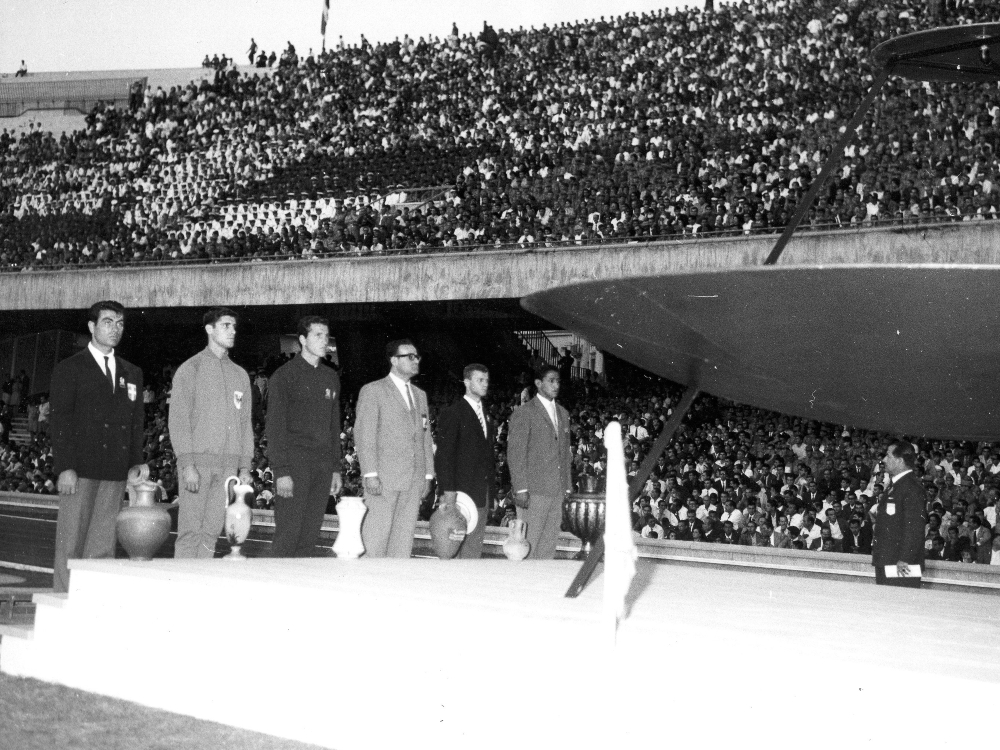
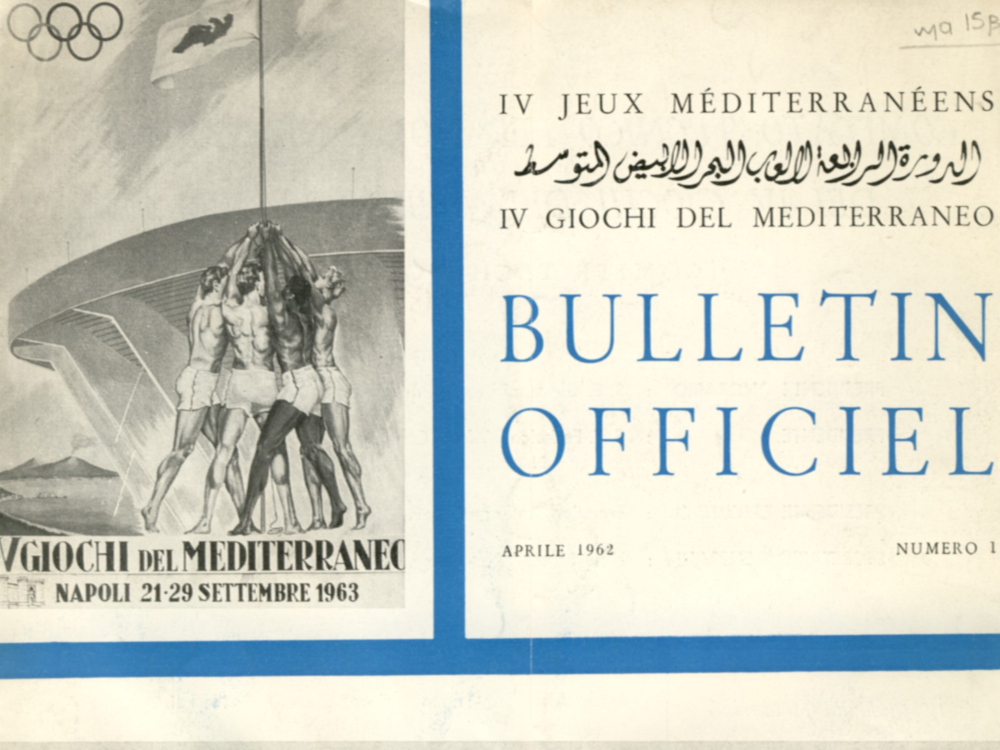
The 5th edition of the Mediterranean Games took place in 1967 and was a historic one as this was the first time female athletes participated in the event. In Tunis, Tunisia, from 8 to 17 September 1967, 1,249 athletes competed, out of which 1,211 men and 38 women, coming from 12 Mediterranean nations, in 14 sports.
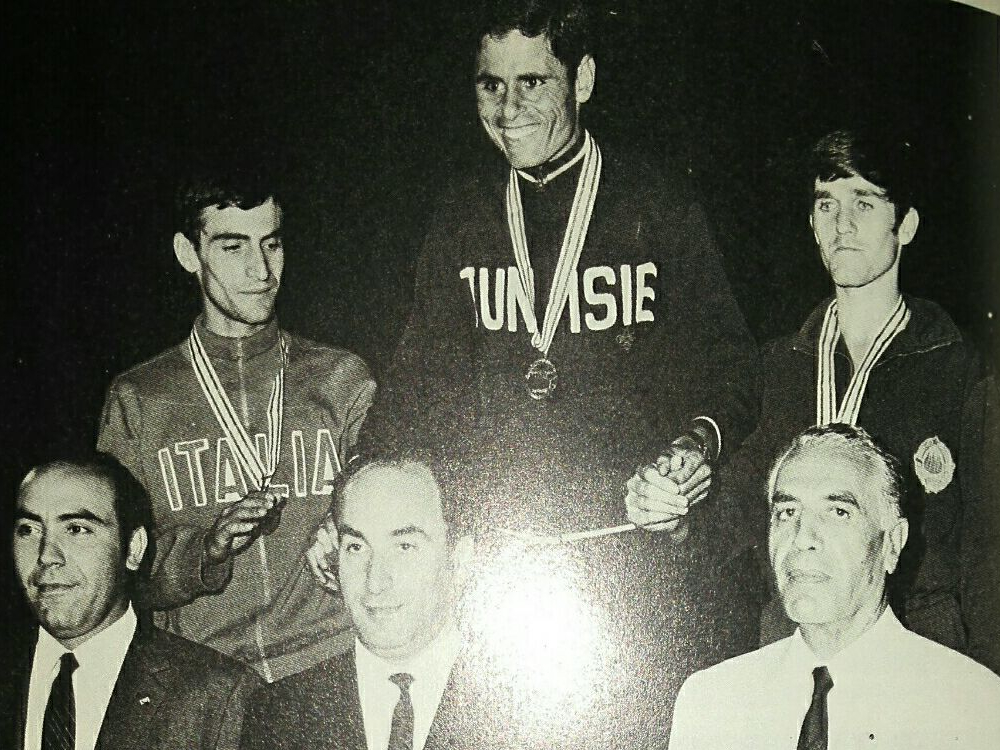
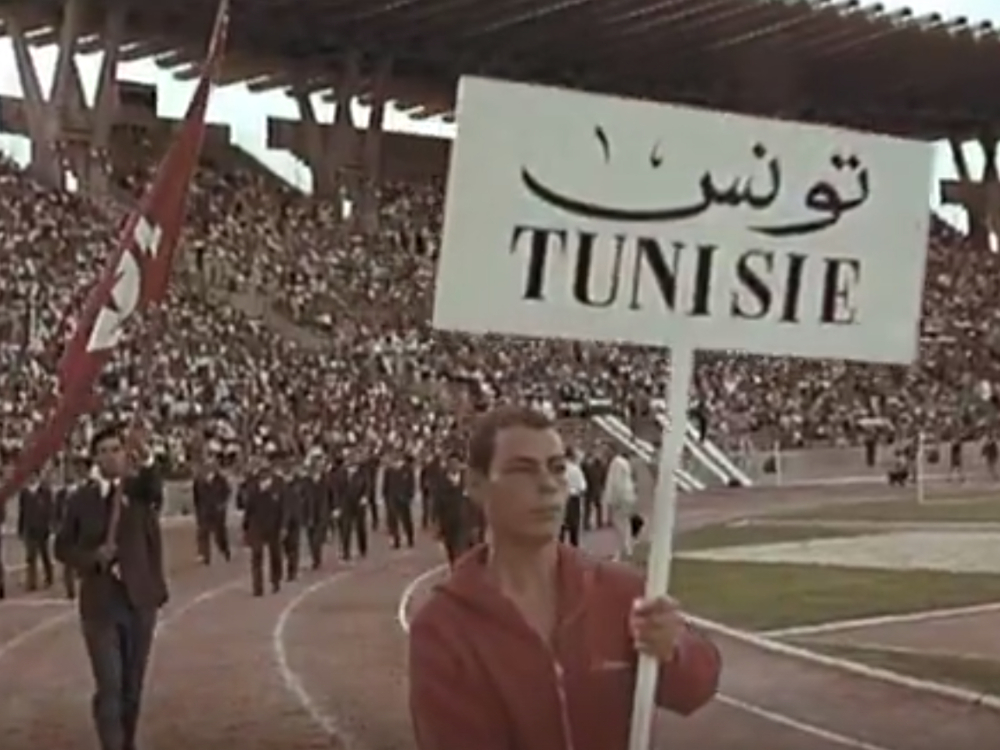
In İzmir, Turkey in 1971 the number of participating countries increased even further to the number of 15 nations, with 1,235 men and women competing in 18 sports.
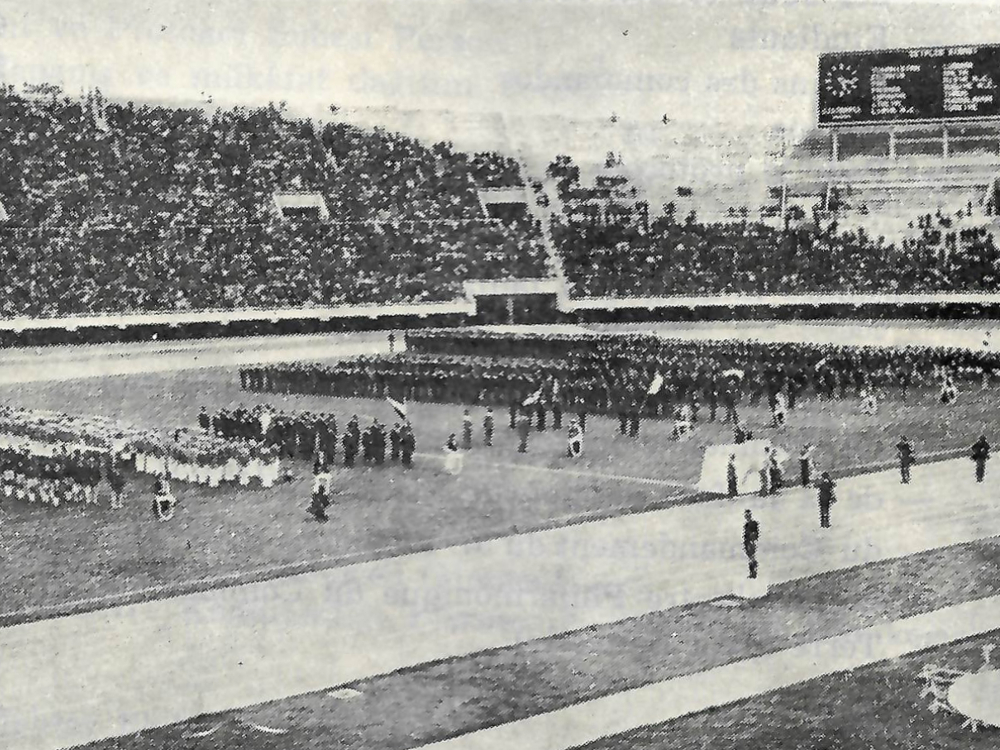
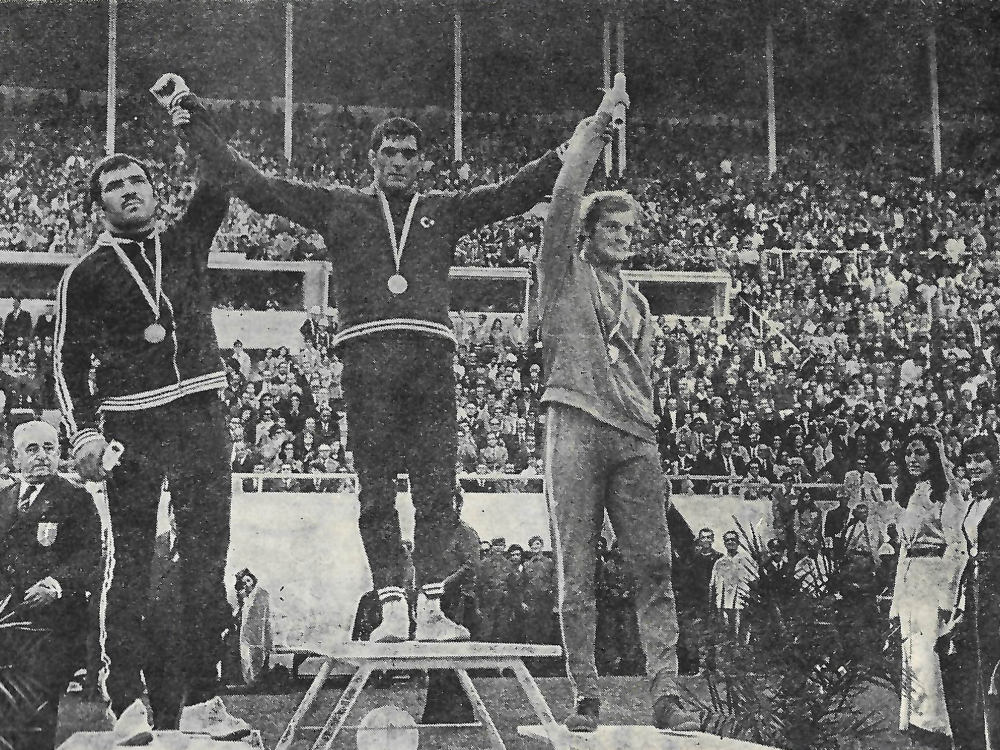
In 1975, in Algiers, the number of participants for the first time surpassed the number of 2,000, with 2,095 men and 349 women from 15 Mediterranean countries competing in 19 sports.
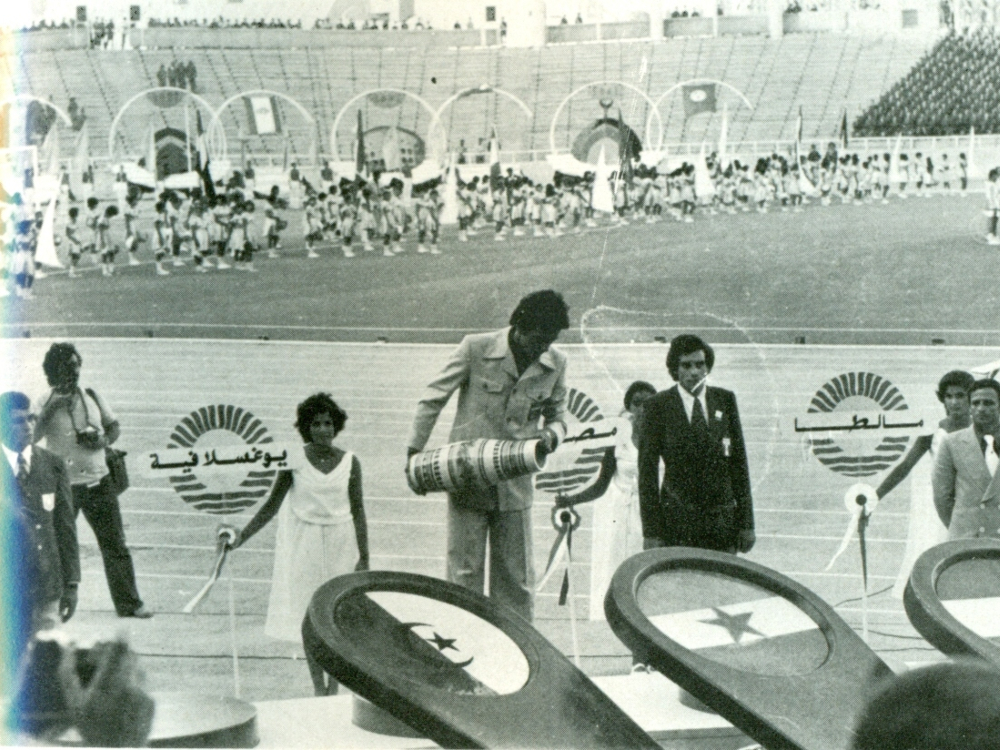
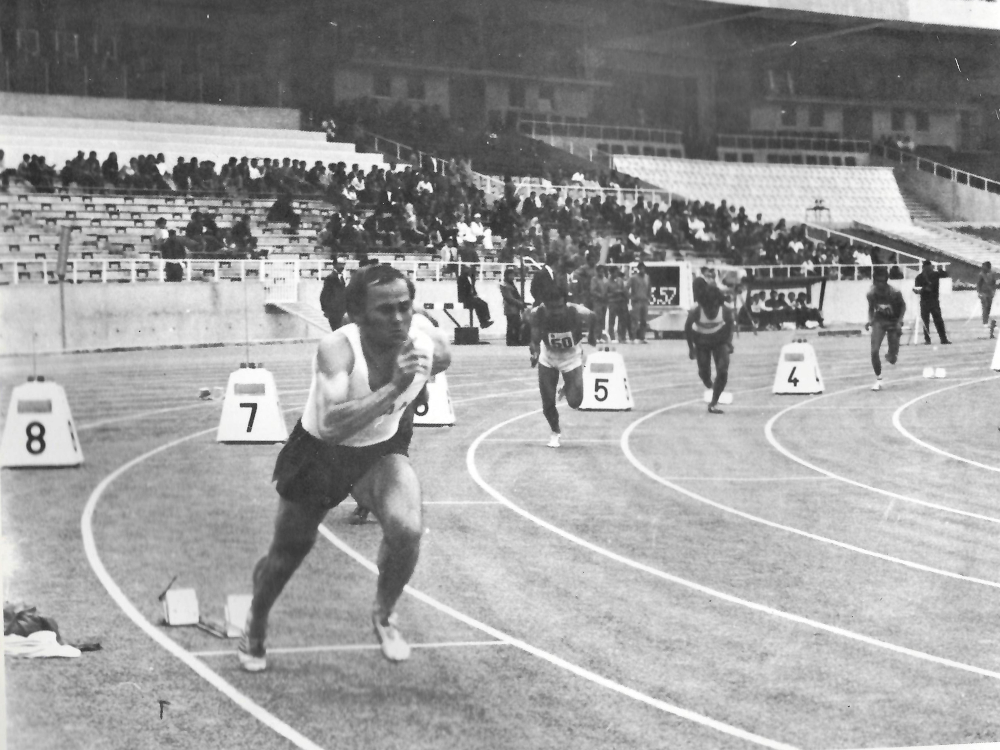
In the 1979 Split edition, of the then Yugoslavia, the number of sports increased even further since, between 15 and 29 September, the games extended over 26 sports. 2,009 men and 399 women from 14 countries took part.
It was in this edition that the ICMG emblem made its first appearance: three interlocking white rings reflected in the blue of the sea, signifying the union of the three continents in the Mediterranean. The logo was conceived by the Croatian designer who designed it for Split, but became the Games logo ever since.
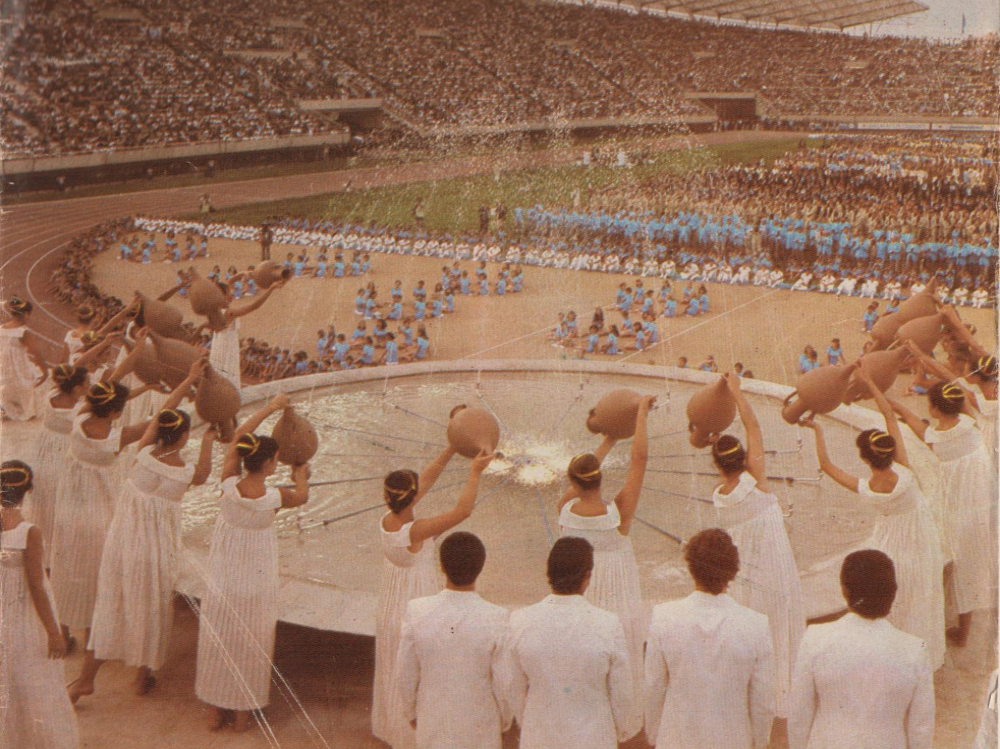
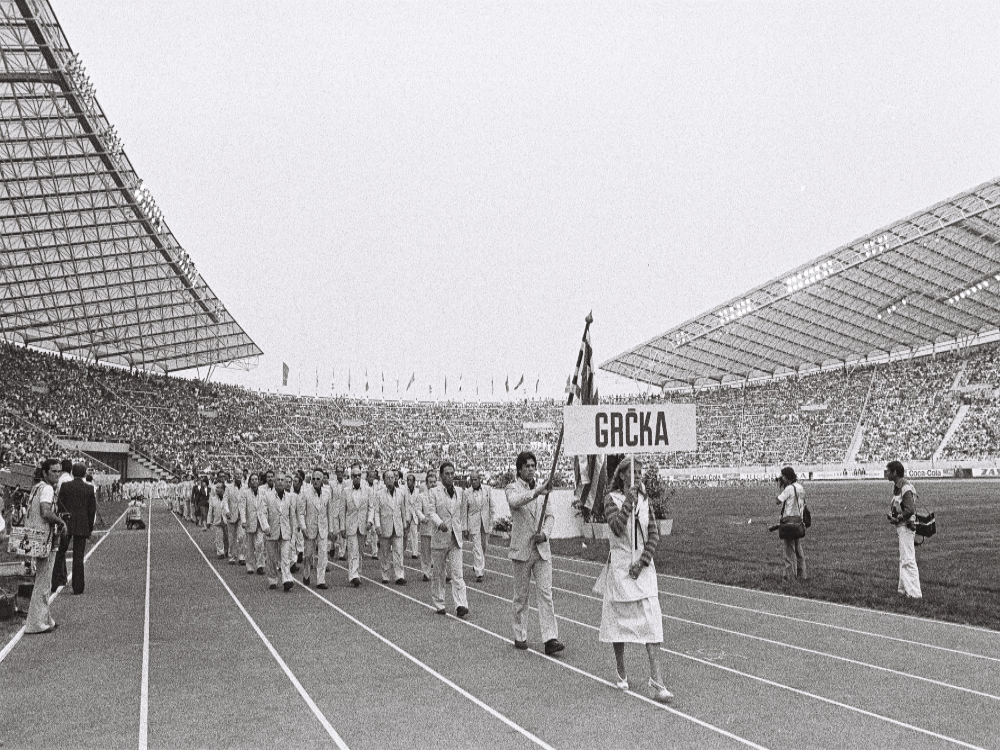
In 1983 it was Casablanca’s turn to host the Games: 2,180 athletes (1,845 men and 335 women) from 16 countries competing in 20 different sports.
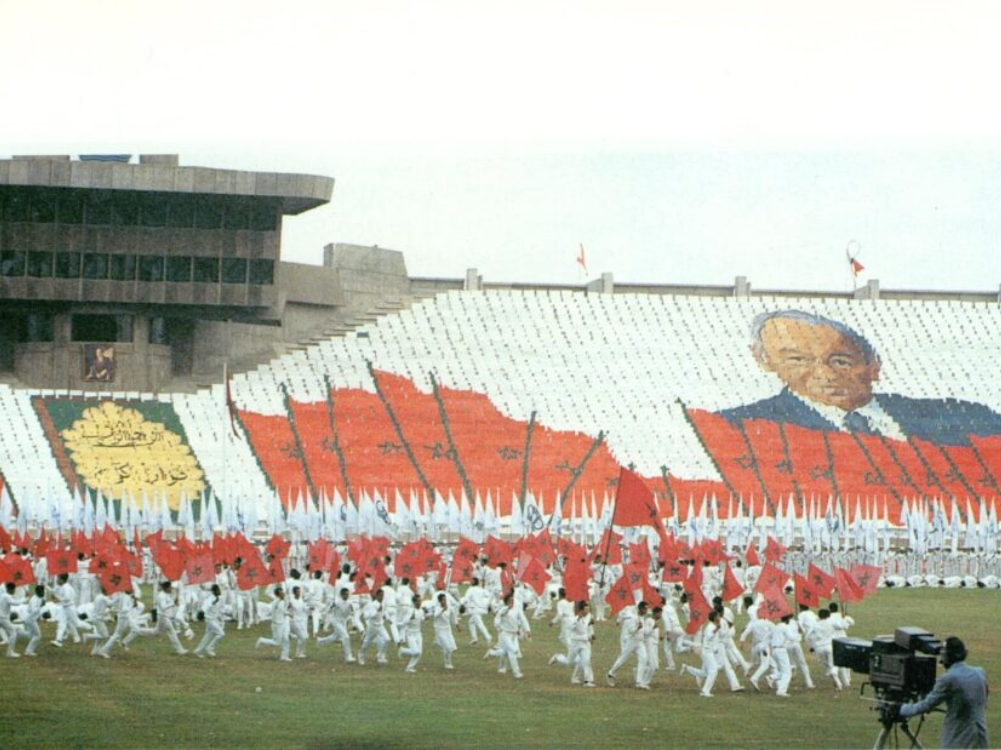
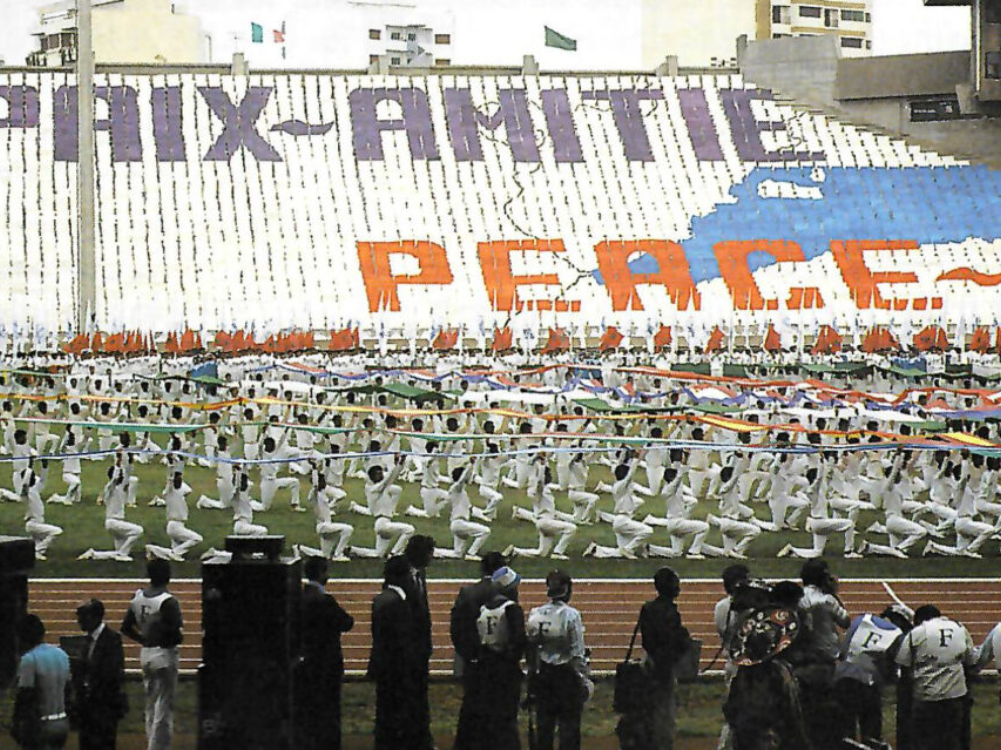
The Latakia 1987 edition in Syria saw a rise in the participating countries, 18 in total, with 1,529 men and 467 women competing in 19 sports.
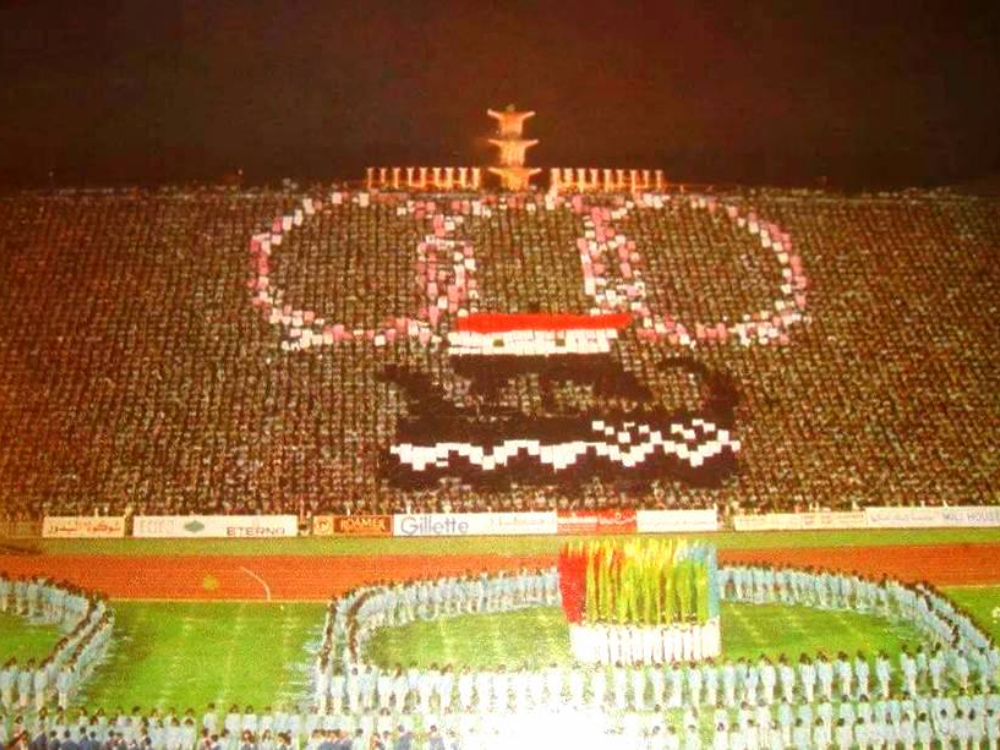
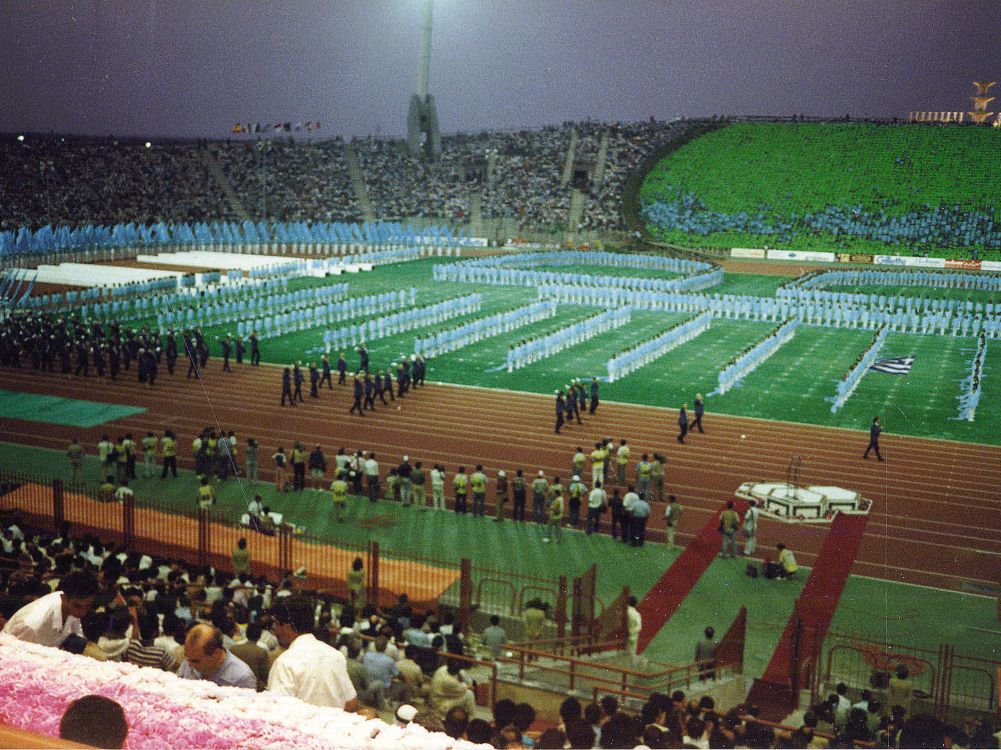
In 1991 the Mediterranean Games were held for the first time in the country where the Olympic Games were born: Athens saw 2,176 men and 586 women from 18 nations competing in 24 different sports.

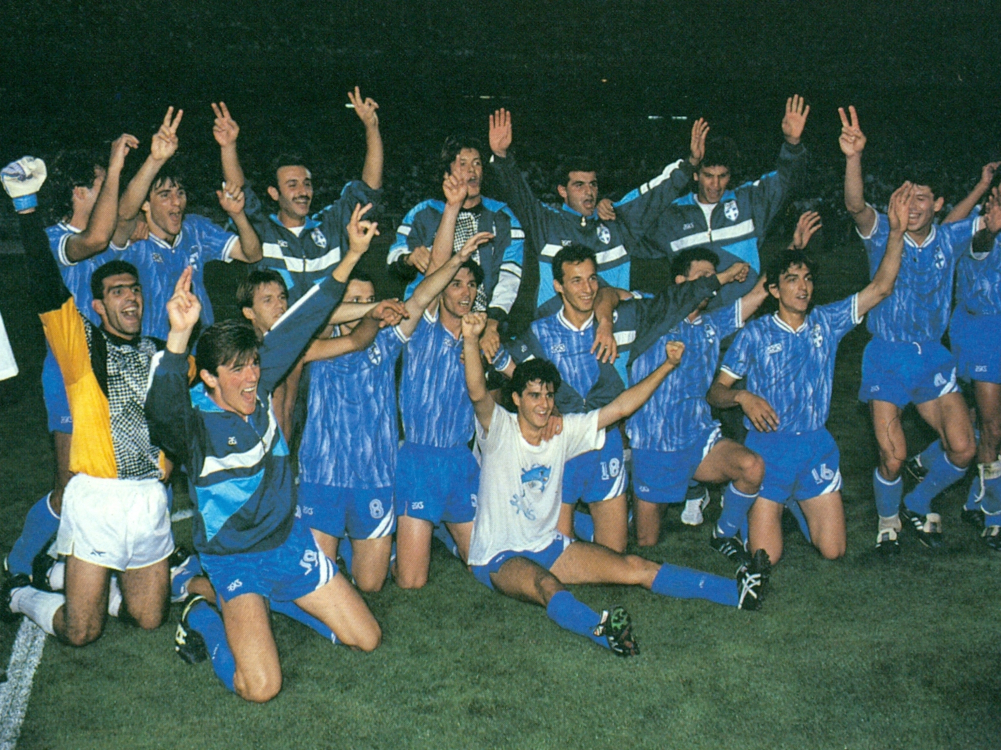
To that date, the Games were repeated every four years, in the year prior to the year of the Olympic Games. It was then decided that the Mediterranean Games would be held on the year following the Olympic Games, so that the young athletes coming from the Mediterranean could better prepare for the new Olympic teams. Therefore, the next edition took place in Languedoc-Roussillon, France between 16 and 27 June 1993, with 1,994 men and 604 women from 19 nations competing in 24 sports.
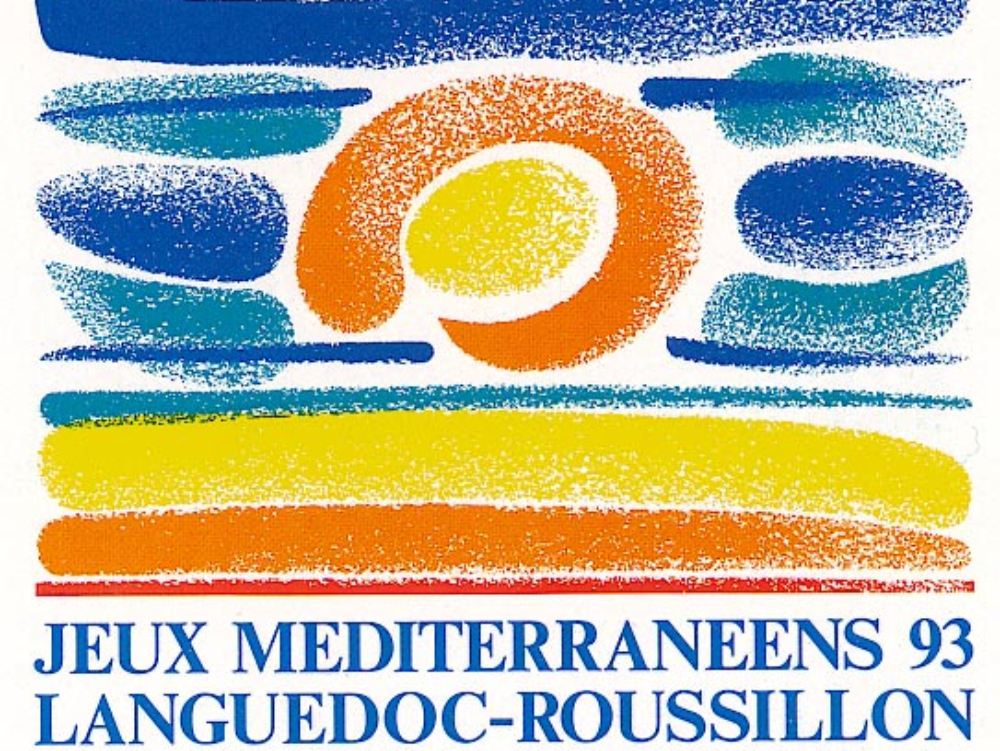
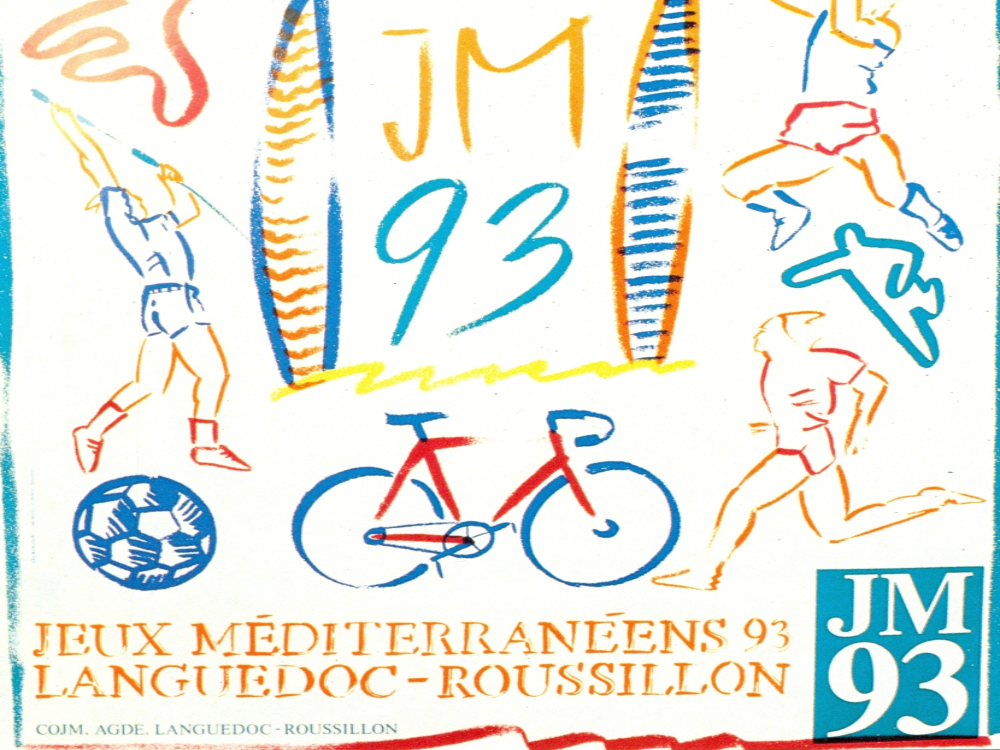
The Bari 1997 was the first time that the participating countries surpassed the barrier of 20 nations, with 2,166 men and 790 women from 21 countries competing in 27 sports.
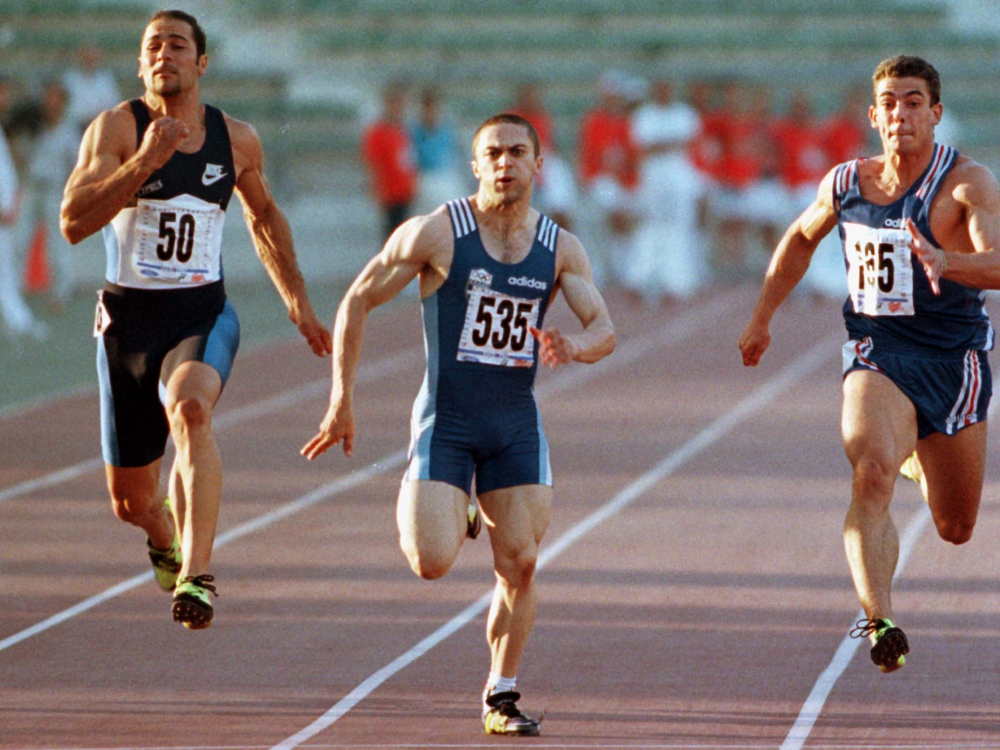
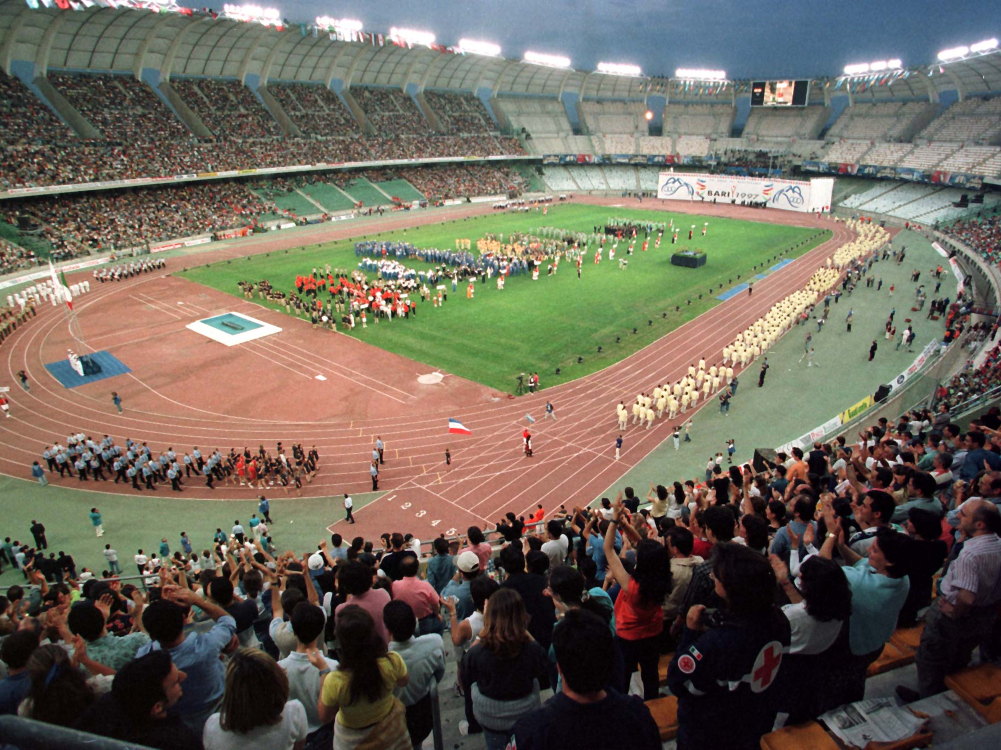
The first edition of the 21st century for the Mediterranean Games was held in Tunis in 2001, with a new record of 23 countries and 1,972 men and 1,019 women competing in the event.
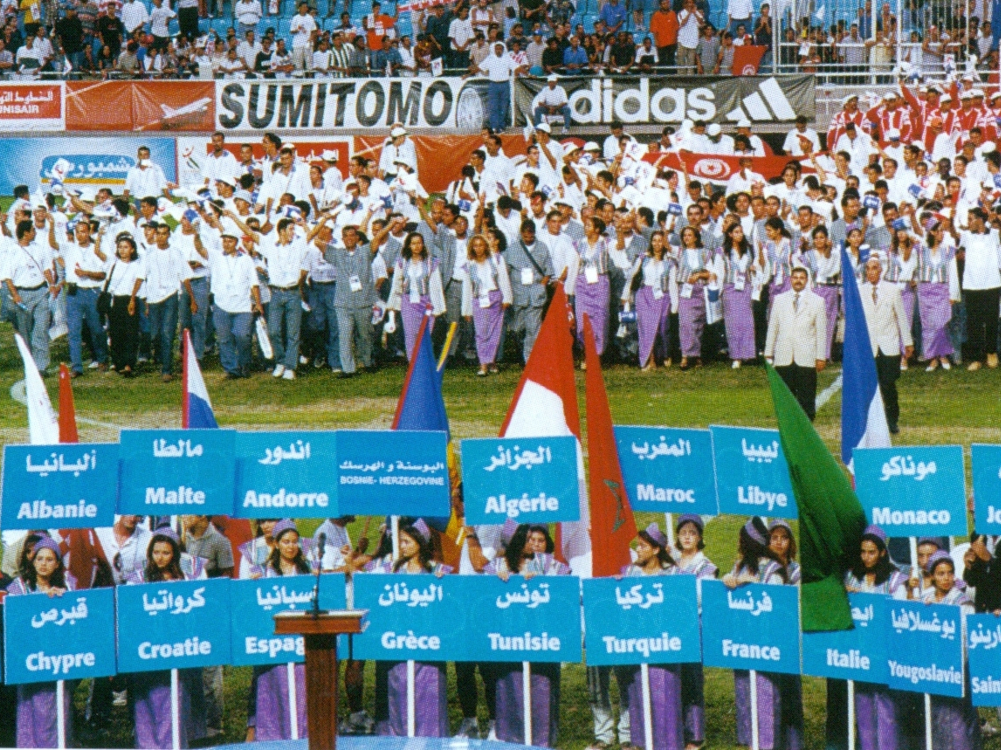
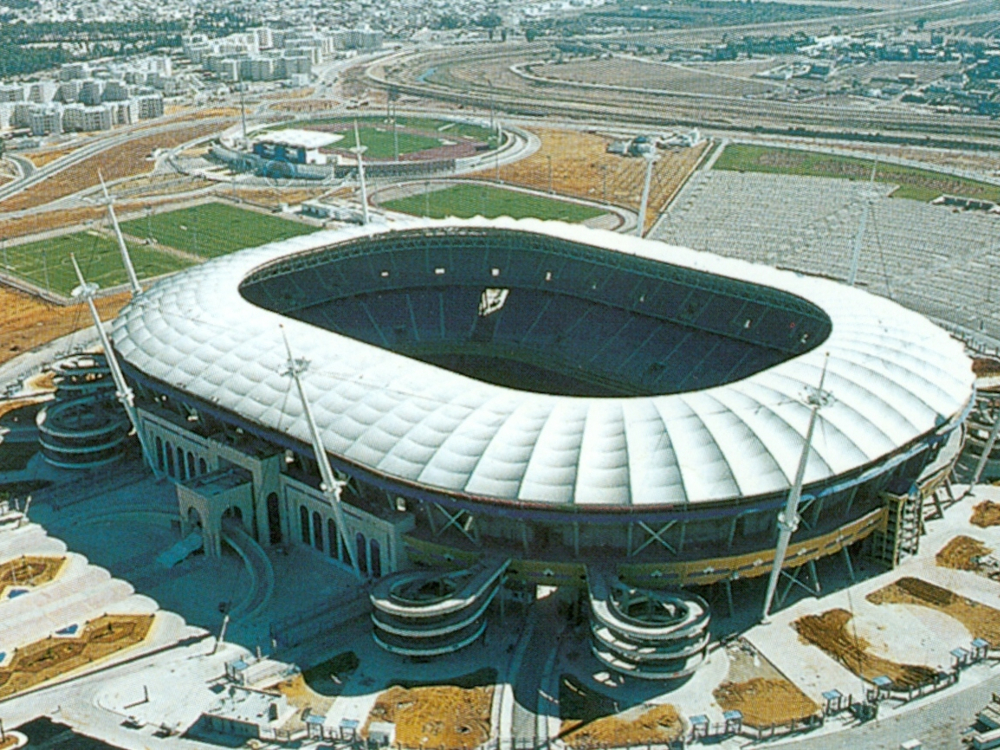
In 2005, in Almería, Spain yet another historic record was achieved with over 3,000 athletes competing in this edition and in particular 2,126 men and 1,077 women.
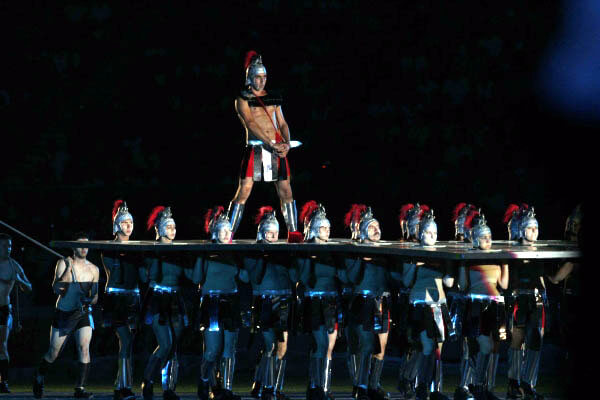

In the Pescara 2009 edition, another exceptional competition, 23 countries took part in this celebration of sports, with the participation of 2,183 men and 1,185 women. The Mediterranean Games showed a significant rise in participation with every edition.
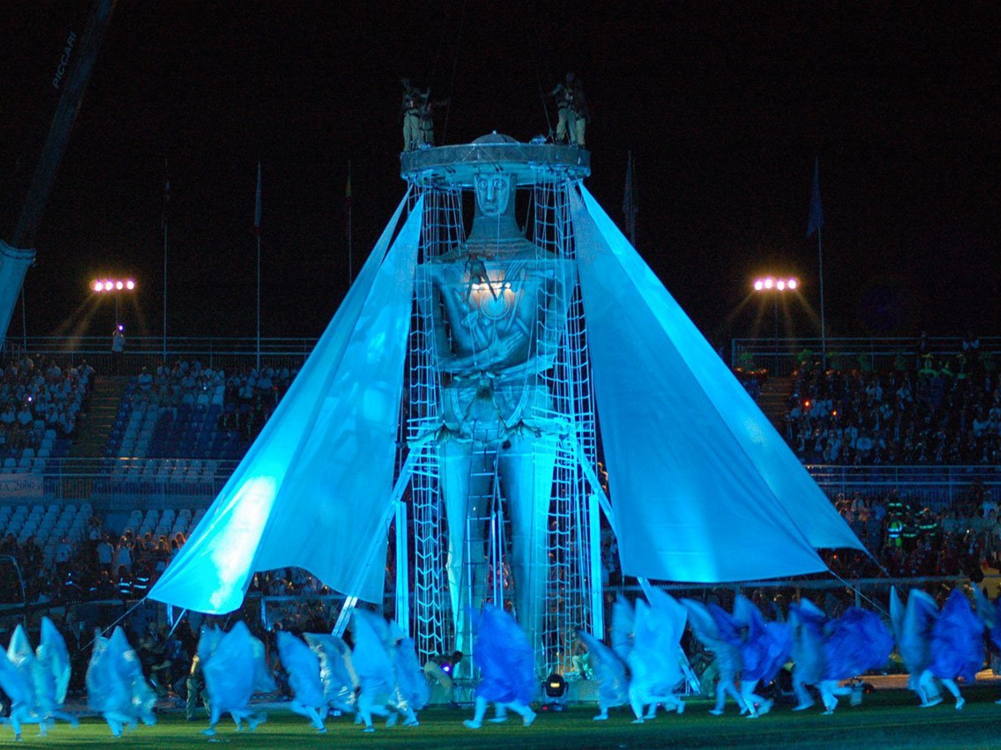
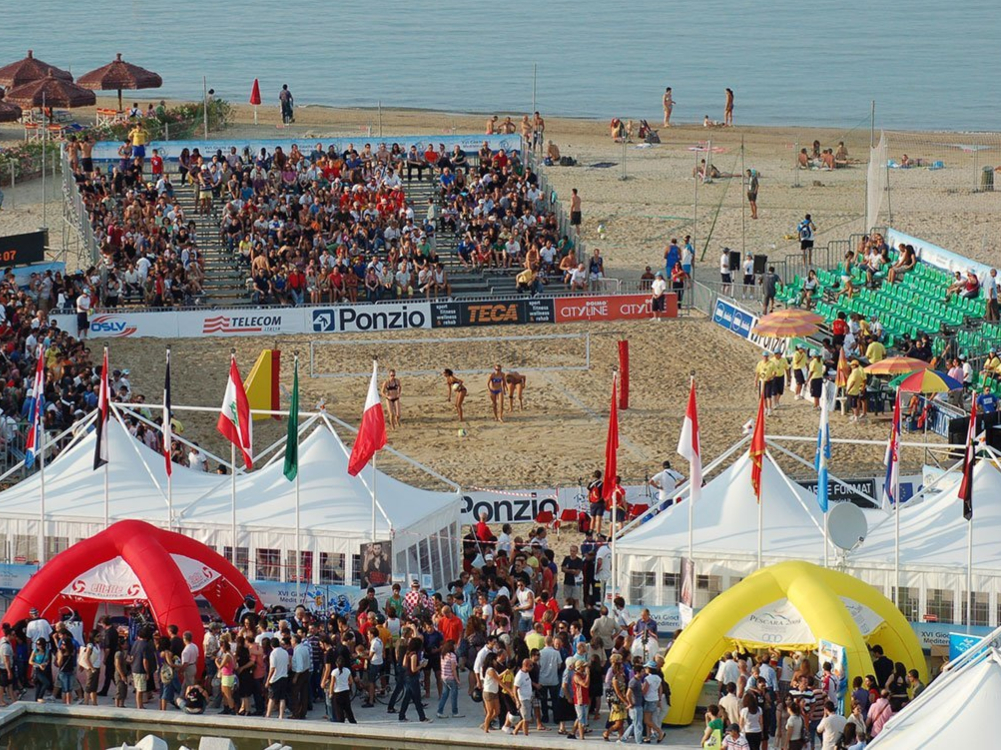
In 2013 in Mersin Turkey, 24 countries sent an overall number of 1,994 men and 1,070 women, this way getting to the latest edition that was held after five years.
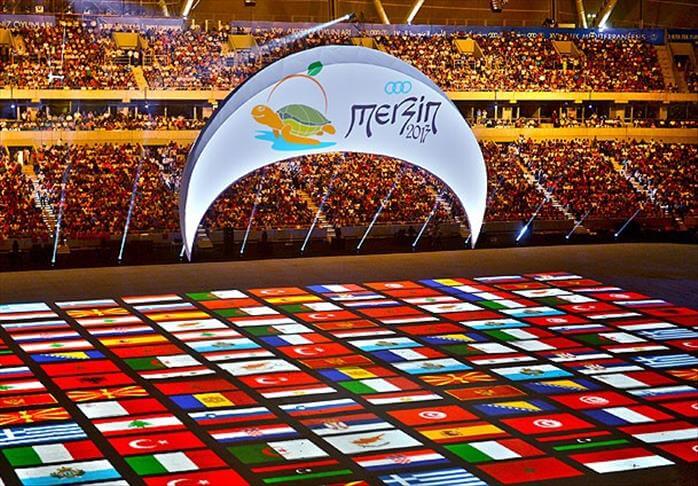
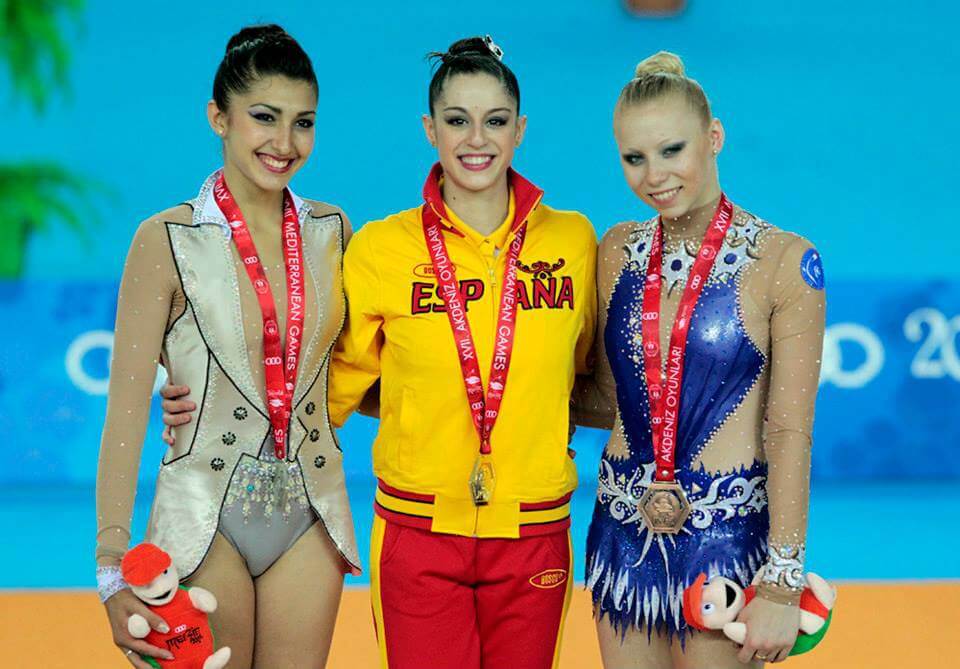
In Tarragona 2018, an all-record event took place: 26 nations, more than ever in the history of the Games, participated with 2,180 men and 1,468 women, corresponding to the greatest ever participation in the Mediterranean Games.
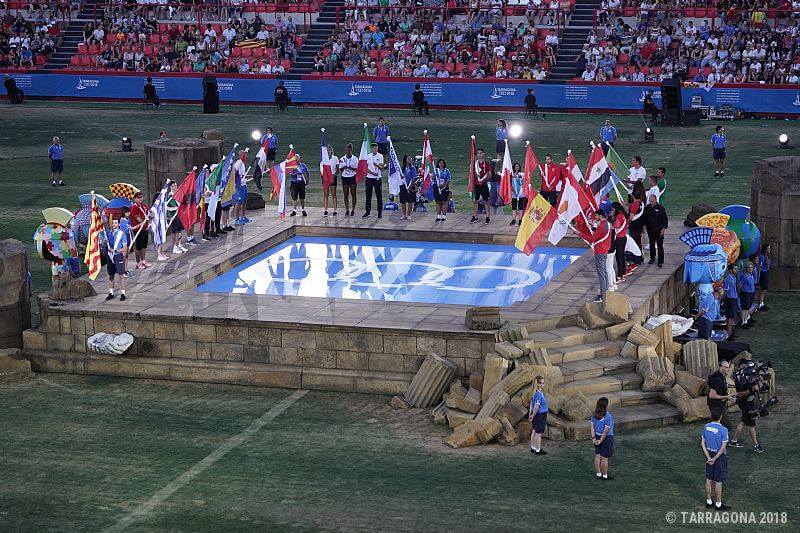
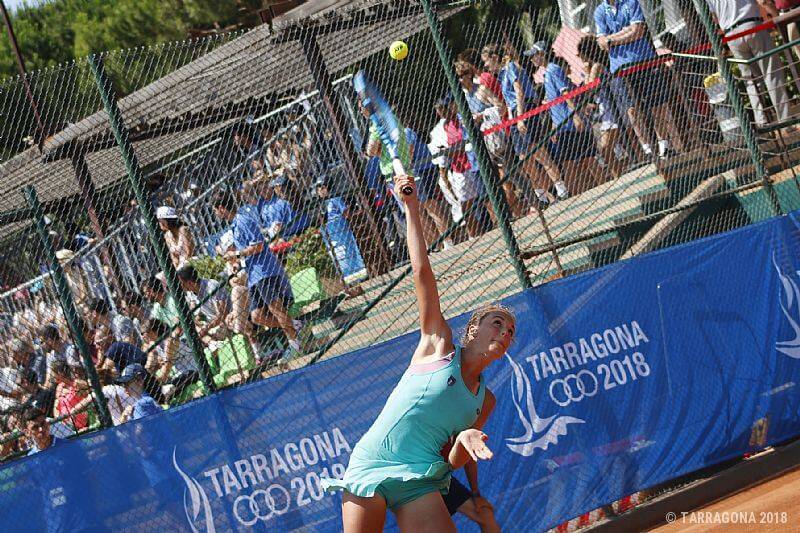
The next appointment of the Mediterranean countries has been set for 2022 in Oran, Algeria as the International Committee of the Mediterranean Games decided in 2019 that the Games would be staged two years after the Olympic Games.
2021 marks the 70th anniversary of a glorious history: 18 important editions have been held, with no doping cases, no illegal betting and with the countries of the Mediterranean Basin demonstrating in practice that sports is a bridge of friendship, peace and solidarity!